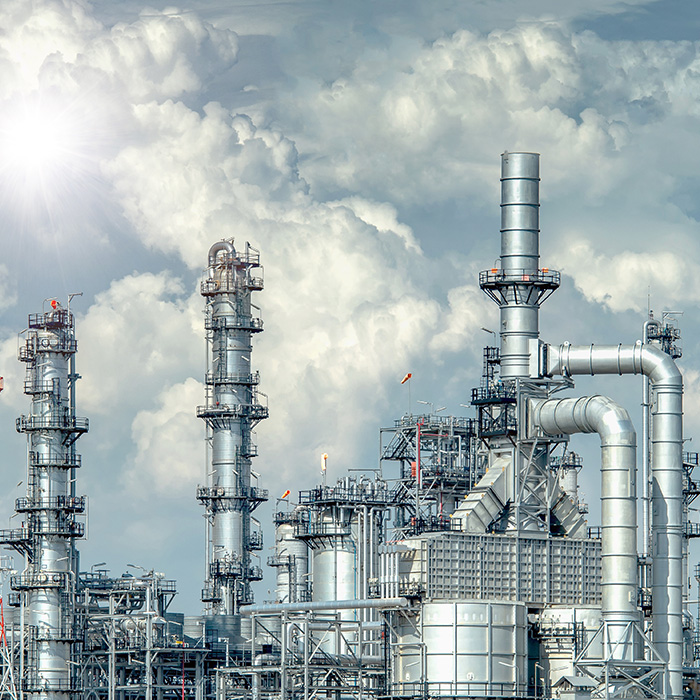Refineries
In the 19th century, refineries in the U.S. processed crude oil primarily to recover the kerosene. There was no market for the more volatile fraction, including gasoline, which was considered waste and was often dumped directly into the nearest river. The invention of the automobile shifted the demand to gasoline and diesel, which remain the primary refined products today.
Today, national and state legislation requires refineries to meet stringent air and water cleanliness standards. In fact, oil companies in the U.S. perceive obtaining a permit to build a modern refinery to be so difficult and costly that no new refineries have been built (though many have been expanded) in the U.S. since 1976.
More than half the refineries that existed in 1981 are now closed due to low utilization rates and accelerating mergers. As a result of these closures, total U.S. refinery capacity fell between 1981 to 1995, though the operating capacity stayed fairly constant in that time period at around 15 million barrels per day (2,400,000 m3/d). Increases in facility size and improvements in efficiencies have offset much of the lost physical capacity of the industry. In 1982, the United States operated 301 refineries with a combined capacity of 17.9 million barrels of crude oil each calendar day. Now there are 149 operable U.S. refineries with a combined capacity of 17.6 million barrels per calendar day.
With the high demand for oil and gas in the United States, Hibbs ElectroMechanical, Inc. understands the cost of and the importance of eliminating unscheduled downtime. Let Hibbs ElectroMechanical, Inc. create a value-added plan by providing high-quality equipment repair and preventative/proactive maintenance solutions. Service is our business! See our Field Service Engineering and Motor Repair sections for more information.
